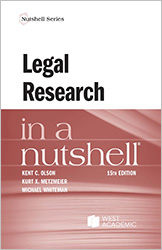What is a Research Plan?
Drafting a research plan might feel familiar—remember those outlines you crafted for essays and papers? Well, good news: these skills are transferrable! A research plan is your roadmap to legal research success. It's where you strategize your approach by defining your research question, identifying relevant legal terms and useful keywords, and outlining the resources you will use. Think of it as a blueprint that keeps you focused, organized, and efficient as you delve into the world of legal authorities.
It's important to note that a good Research Plan consists of several key components, each working to guide your research process. We'll explore each of these components in detail below, equipping you with the tools to build a winning research plan and conquer any legal question.
Who are you working for? Understanding your client's needs and expectations is crucial.
What is the desired outcome of your research? Are you preparing a legal brief, writing a memo, or simply providing initial guidance? Knowing the deliverable helps tailor your research strategy.
The factual details of your legal issue are like puzzle pieces. Gather and analyze all relevant facts—remember who/what/when/where/why/how from grade school?—to gain a comprehensive understanding of the situation.
Which legal system applies to your question? Knowing the jurisdiction helps determine the relevant legal sources to explore.
What type of authorities will you primarily be relying on? Is this something that has been codified in statute, or will you be relying mostly on the courts?
Unpack your legal question and identify the key legal concepts and terms involved. These terms will become your search keywords when exploring legal databases and resources.
The legal landscape has two different types of authorities: binding and persuasive. Identify which sources carry the most weight in your jurisdiction (binding) and which can offer helpful insights (persuasive) to strengthen your understanding.
Research requires time and resources. Be realistic about the time you can dedicate and any potential budget limitations. This can influence the scope and depth of your research strategy.
From legal databases and online resources to print materials like treatises and law reviews, a variety of tools are available. Making a checklist of what resources to use helps structure your research process.











)